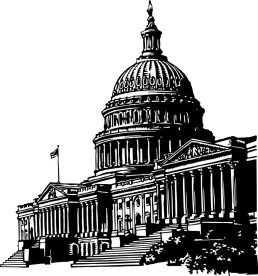The recently enacted CARES Act legislation contains at least two significant benefits that may be of interest to nonprofit organizations. One is in the form of Paycheck Protection Loans. These loans, which will be available through SBA-approved lending institutions, will permit a nonprofit to borrow up to 2 1/2 times the organization's average monthly payroll expense. Principal and interest payments are deferred for at least six months and processing fees are waived. No personal guarantees are required. Perhaps of most interest is that a significant portion of the loan will be forgiven if the organization can document that it has not reduced the number of its full time equivalent (FTE) employees as compared to 2019. If there has been a reduction in FTEs, the amount of the loan forgiven is reduced on a pro rata basis. The loans are available to 501(c)(3) organizations with less than 500 employees, including faith-based organizations and churches.
The second benefit under the CARES Act is available to those nonprofits who have experienced a 50 percent or greater decline in gross receipts as a result of the COVID-19 crisis, or whose operations have been fully or partially suspended as a result of a government order limiting commerce, travel or group meetings. Such organizations may qualify for a 50 percent refundable credit for wages paid during the crisis. The credit equals 50 percent of qualified wages up to $10,000 paid to each employee or $5,000 in actual credit per employee. This benefit may be of particular value to those nonprofits that rely on earned income and have had to close their doors due to the current crisis.
In addition, charities will also be interested in the increased limitations for charitable contributions available to their donors. The CARES Act expands the charitable contribution deduction for both individual and corporate taxpayers if the donations are in the form of either cash or certain food inventory to 501(c)(3) charities (except supporting organizations and donor advised funds).
First, a $300 above-the-line deduction has been added so individuals who do not elect to itemize their deductions can deduct cash contributions to these charities made in 2020.
Second, the 60 percent of adjusted gross income (AGI) limitation on charitable contribution deductions for individuals is increased to 100 percent of AGI for these cash contributions. Similarly, the 10 percent of taxable income limitation on charitable contribution deductions for C corporations is increased to 25 percent of taxable income for these cash contributions. Any of these contributions by an individual or corporation in excess of the new limit can be carried forward under the normal rules.
In addition, the limitation on charitable contribution deductions for donations of food inventory to a charitable organization that will use it for the care of the ill, the needy or infants is increased. Such donations are generally deductible in an amount equal to basis plus half the gain that would be realized on the sale of the food (but not to exceed twice the basis).
In the case of a C corporation, the deduction for donations of food inventory formerly could not exceed 15 percent of the corporation's income. In the case of a taxpayer other than a C corporation, the deduction could not exceed 15 percent of aggregate net income of the taxpayer for that tax year from all trades or businesses from which those contributions were made (computed without regard to the taxpayer's charitable deductions for the year). For 2020, the limitation in both cases is now increased to 25 percent.




 />i
/>i

